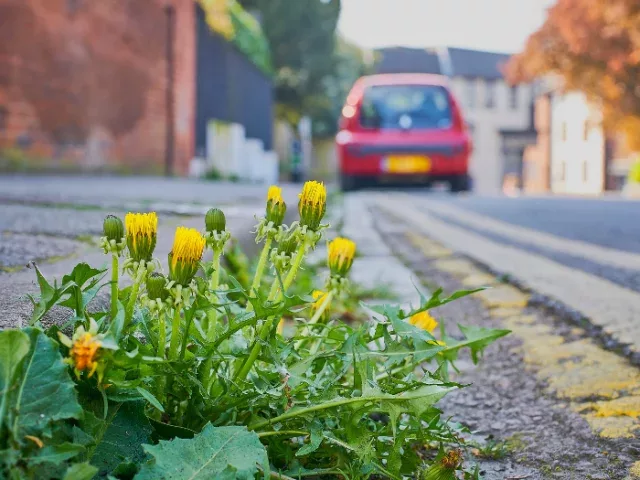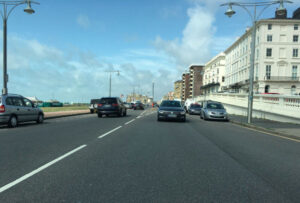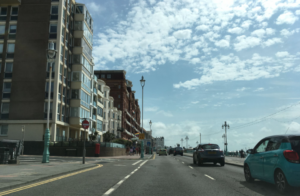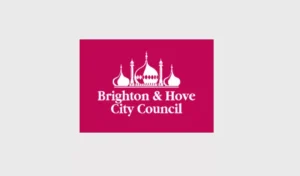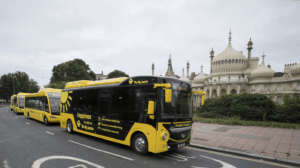Brighton & Hove City Council has been trialling new machinery for weeding as part of a review into how it maintains pavements across the city.
This includes mechanical sweepers, weed rippers and specialist strimmers with weed ripping brushes.
Councillor Tim Rowkins and Councillor Theresa Fowler recently met with members of the Cityclean team to inspect the new machinery and hear their feedback.
They concluded that significant improvements have been made using the new machinery which will be used to accelerate weeding over the next few months.
the council said: “We know that weeds across Brighton & Hove have increased since the committee decision to end the use of glyphosate in 2019. We know that we must urgently get the situation back under control.
“Our priority is to ensure our streets, pavements and environment are safe and accessible for residents and to limit damage to highway infrastructure.
“We have a team dedicated to weeding and maintaining street access across the city and we’re trialling new methods and machinery to help us with weeding this season.”
This year the council also started recruitment early and filled the roles it advertised for.
Unlike in previous years, early recruitment success meant the council was able to get ahead with weeding and pavement maintenance before the weather warmed up.
“Our street cleansing operatives are also helping with maintaining pavements as part of their rounds and operatives usually based along the seafront help out with weeding on quieter days,” the council said.
“We’ve established a traffic light system to identify areas where weeding and pavement maintenance will be prioritised while we trial new weeding methods.”
Streets and highways across Brighton & Hove are ranked into red, amber and green zones based on information provided by its highways and street cleansing teams, as well as feedback from residents.
Red zones are areas where access, trip hazards and damage to highways are more likely to be a priority.
Councillor Tim Rowkins, Chair of the City Environment, South Downs and The Sea Committee, said: “We know that dealing with weeds on our pavements is a top priority for residents and so we are looking at several additional tools to accelerate our weeding and ensure our pavements are accessible for our residents.
“I have been regularly meeting with our street team and I was pleased to be able to inspect the new machinery. The brush weeder was particularly impressive.
“Our new traffic light system and machinery have meant we’ve been able to tackle weeding more effectively this season, but there is still a lot of progress to be made. We look forward to reviewing and sharing future weeding plans with residents.”
The council added: “While we have a responsibility to ensure our streets and pavements are safe and accessible, plants we often call weeds, can benefit us.
Plants help to cool our city, absorb rainfall and help with air pollution. By allowing plants such as dandelions, common knapweed and red deadnettle to flower, we’re able to create joined-up habitats that provide food and shelter for local insects and wildlife. Plants provide important pollen and nectar resources, which help feed our hungry birds, bats, amphibians and mammals, including hedgehogs.”



